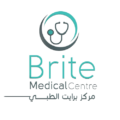Breastfeeding is one of the most effective ways to ensure child health and survival. However, contrary to WHO recommendations, fewer than half of infants under 6 months old are exclusively breastfed.
Breastmilk is the ideal food for infants. It is safe, clean and contains antibodies which help protect against many common childhood illnesses. Breastmilk provides all the energy and nutrients that the infant needs for the first months of life, and it continues to provide up to half or more of a child’s nutritional needs during the second half of the first year, and up to one third during the second year of life.
Breastfed children perform better on intelligence tests, are less likely to be overweight or obese and less prone to diabetes later in life. Women who breastfeed also have a reduced risk of breast and ovarian cancers.
Inappropriate marketing of breast-milk substitutes continues to undermine efforts to improve breastfeeding rates and duration worldwide.
WHO and UNICEF recommend that children initiate breastfeeding within the first hour of birth and be exclusively breastfed for the first 6 months of life – meaning no other foods or liquids are provided, including water.
Infants should be breastfed on demand – that is as often as the child wants, day and night. No bottles, teats or pacifiers should be used.
From the age of 6 months, children should begin eating safe and adequate complementary foods while continuing to breastfeed for up to two years of age or beyond.
WHO actively promotes breastfeeding as the best source of nourishment for infants and young children, and is working to increase the rate of exclusive breastfeeding for the first 6 months up to at least 50% by 2025.
WHO and UNICEF created the Global Breastfeeding Collective to rally political, legal, financial, and public support for breastfeeding. The Collective brings together implementers and donors from governments, philanthropies, international organizations, and civil society.
WHO’s Network for Global Monitoring and Support for Implementation of the International Code of Marketing of Breast-milk Substitutes, also known as NetCode, works to ensure that breast-milk substitutes are not marketed inappropriately.
Additionally, WHO provides training courses for health workers to provide skilled support to breastfeeding mothers, help them overcome problems, and monitor the growth of children.
Joint statement by UNICEF Executive Director and WHO Director-General on the occasion of World Breastfeeding Week
Global Congress opens to counter harmful marketing of formula milk
Immediate kangaroo mother care reduces risk of sepsis for babies born early or small
New resources released to help more preterm and low birthweight babies benefit from kangaroo mother care
Our works
Measuring child growth through data
Promoting baby-friendly hospitals
Campaign
Digital environments are fast becoming the predominant source of exposure to promotion of breast-milk substitutes globally. Digital marketing amplifies…
This information note provides clarification of terms used in the WHO Guidance on Ending the Inappropriate Promotion of Foods for Infants and Young Children….
Child malnutrition estimates for the indicators stunting, wasting, overweight and underweight describe the magnitude and patterns of under- and overnutrition…
The Global Breastfeeding Scorecard examines national performance on key indicators of the seven policy priorities identified by the Global Breastfeeding…
Events
Let's Make Breastfeeding Work webinar
World Breastfeeding Week 2023 – Let’s make breastfeeding and work, work!
Global Congress on Implementation of the International Code of Marketing of Breast-milk Substitutes
Episode #51 – Breastfeeding & COVID-19
If you have COVID-19, is it safe to breastfeed your baby? Is it safe to get vaccinated against COVID-19 if you are breastfeeding? How can you keep your baby safe while breastfeeding if you have COVID-19? Dr Laurence Grummer- Strawn explains in Science in 5.
Donors making a difference: building stronger health systems
Empower parents, enable breastfeeding
Facts in pictures
Breastfeeding
Related health topics
Complementary feeding
Infant nutrition
Micronutrients
Newborn health
